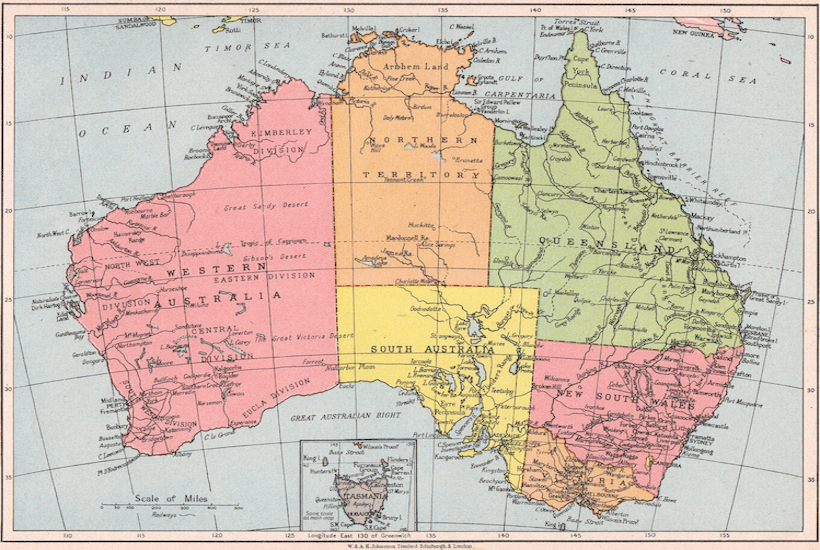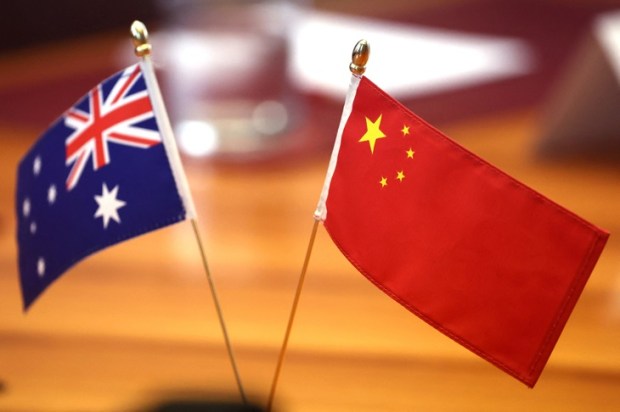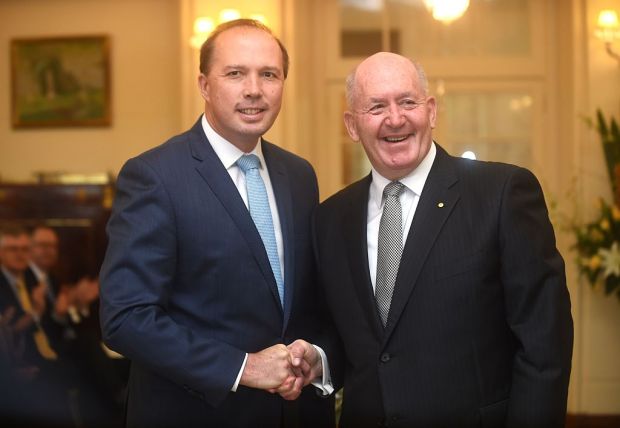The Prime Minister is in a terrible mess. Not because of the photograph cuddling his grandchild and holding a glass of beer. One columnist suggested there wouldn’t have been complaints had he been drinking a latte. Probably not, although I would advise against drinking a hot coffee while holding a baby. Common sense would tell you not to do that. But politicians these days are notoriously lacking in common sense, although I see that common sense has at last arrived in the National Party with the recognition that the RET is nothing more than a protection racket.
As for the Prime Minister, his problem is that he is desperately trying to blame Labor and the electricity companies for the energy mess for which he is responsible.
If only our High Court had observed the clear intention of our founders and of the people, the Federal government would not have been allowed to make the mess they have not only in the energy market, but in other areas such as our schools.
The division of powers between Canberra and states was made very clear by our founding fathers, with our first Prime Minister, Sir Edmund Barton, explaining that where the constitution withheld a power from the Commonwealth, this was ”a prohibition against the exercise of such a power”.
Until 1920, the High Court applied the principle that Canberra’s powers were those clearly spelt out in the Constitution with all the others reserved to the states. This commonsense conclusion is supported by clauses which save both the laws and the powers of the then six colonial parliaments.
But by 1920 all of our great founding fathers had left the court, and since then, mainly centralist and legalistic judges have found different reasons to get around this. Since the departure in 2007 of that great Queensland judge, Ian Callinan, the Court has been bereft of federalists.
The first approach of the centralists was to interpret the Constitution as if it were any old statute, such as one that intrigued me when I long ago discovered it , the old New South Wales Dog and Goat Act, 1898. This approach means that Commonwealth powers would be interpreted without any consideration of the obvious basis of the federation as expressed by Barton – if there is no power granted in the constitution, Canberra is forbidden to exercise that power. Nowadays the High Court seems bent not only on increasing Canberra’s powers, but from its recent decision concerning the same-sex marriage plebiscite, increasing the powers of the government over the Parliament.
Just on the subject of marriage, in the 2013 case in which ACT same-sex marriage legislation was held to be invalid, the Court quite gratuitously indicated that the meaning of marriage, as it was understood when the people agreed to the constitution, had changed. Apparently it now means whatever the judges say it means. So don’t be surprised if at some time in the future, without any constraint from the High Court, a Parliament authorises marriages under sharia law, including polygamous and child marriages, and marriages without the consent of the wife. This is not far-fetched. As Raheem Kassam demonstrates in his recent book on no-go zones or emerging autonomous Islamic republics operating under Sharia law in today’s unhappy Europe, such marriages already exist there with women stripped of their rights. In at least one European country, this travesty is being given partial legal recognition.
Had our constitution been observed by the High Court, the chances are that at least one state today could have elected politicians with the commonsense with which the rank-and-file are endowed. Accepting that the theory of man-made global warming is unproven and official UN predictions completely wrong, the people of that state would have continued to enjoy the lowest energy prices in the world.
This would have had the same effect that the late and dare I say the great Sir Joh Bjelke-Petersen had achieved when, against the opposition of his Treasurer, he unilaterally abolished death duties in Queensland. As a young articled clerk in a law firm, I had seen what a vicious and cruel tax that could be on farming and small business families, indeed any family with assets, including a house. The very rich always employed the best lawyers and accountants to minimise their taxes and of course the very poor had no assets. So just when the family had lost their main breadwinner and head, they were obliged to pay a massive amount in death and federal estate duties. So a personal tragedy and loss could be followed by financial ruin or massive indebtedness. How on earth was a farming family to pay a lump sum tax representing say a third or a quarter of the value of their property without breaking up or heavily mortgaging the farm?
When Sir Joh acted, the elderly across Australia started to make the long trek to Queensland, moving their assets there if they could. Difficult for farmers, it was easier for the retired. For some reason or other, they had decided that they would prefer to leave their assets to their spouses and children rather than to the politicians who at that time were certainly not as wasteful as they are today .
Within a relatively short period of time the Queensland example had been followed across the nation and even by the Commonwealth. Of course the politicians have been eyeing the possibility of renewing death duties, but the reaction has been such that even the Greens having removed this from their official written agenda.
If we returned to the basic principles of our constitution, we would not be in the difficulties we are today. Given that representative democracy has been debased and captured, we need an elected constitutional convention to consider how best to restore our democracy. This would involve making our politicians more accountable and, no doubt therefore less arrogant. It would also involve encouraging the emergence of new states to counter the excessive centralisation, especially in Sydney Melbourne and Brisbane.
Got something to add? Join the discussion and comment below.
Got something to add? Join the discussion and comment below.
Get 10 issues for just $10
Subscribe to The Spectator Australia today for the next 10 magazine issues, plus full online access, for just $10.


























Comments
Don't miss out
Join the conversation with other Spectator Australia readers. Subscribe to leave a comment.
SUBSCRIBEAlready a subscriber? Log in